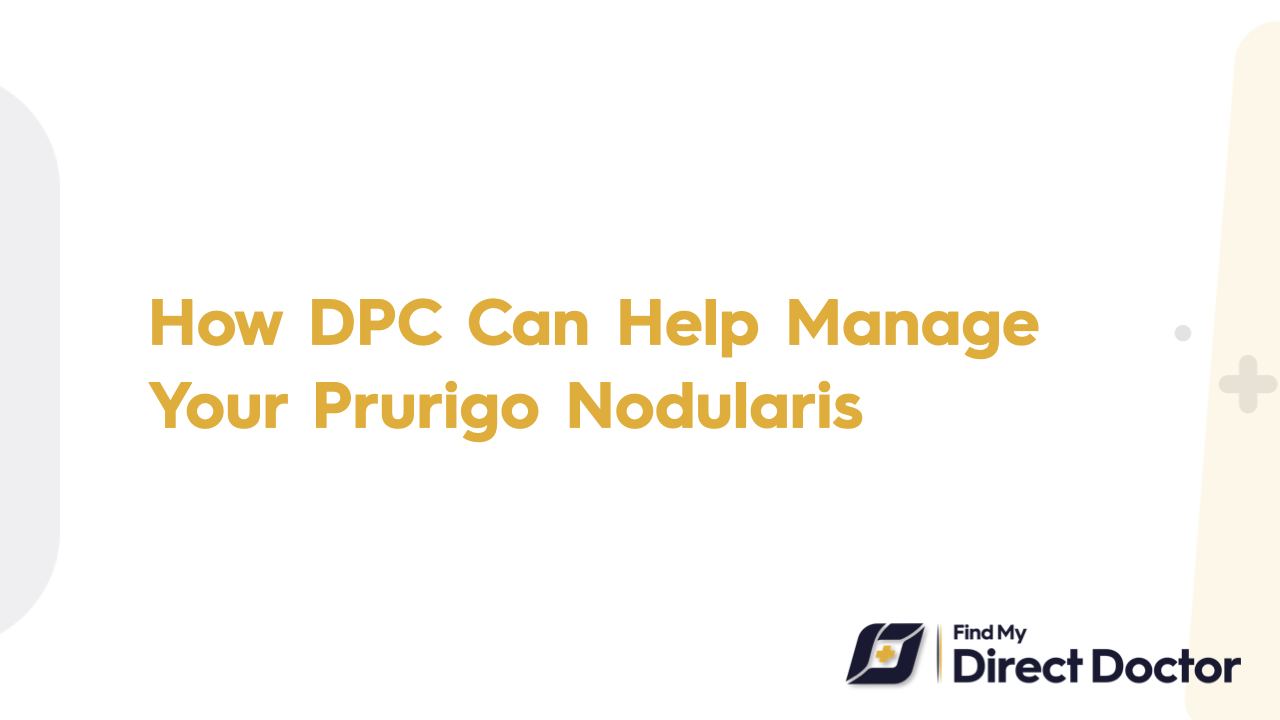



The onset of firm, itchy nodules or bumps on the skin is a hallmark of the chronic skin disorder prurigo nodularis. These nodules can vary in size and are usually located on the arms, legs, or chest. The main sign of prurigo nodularis is severe itching, which frequently prompts people to scratch the afflicted areas, thickening or scarring the skin. This cycle of scratching can exacerbate the illness, making management more challenging. Prurigo nodularis can occasionally be linked to underlying medical diseases such as mental health issues, liver illness, or kidney disease.

By providing continuous, individualized therapy, Direct Primary therapy (DPC) provides an efficient method of managing prurigo nodularis. DPC gives patients more access to their doctor, allowing for prompt treatment in the event of flare-ups. With therapies like topical steroids, antihistamines, or physician referrals, DPC enables faster symptom control for prurigo nodularis, which can be extremely uncomfortable and upsetting. DPC assists in modifying treatment programs in response to the patient's condition, hence lowering the frequency and intensity of flare-ups.
DPC offers a number of advantages to patients with prurigo nodularis, especially in terms of easily accessible and individualized treatment. Because they can communicate directly with their primary care physician, problems can be resolved and treatments can be managed more quickly. DPC's shorter wait times and more frequent check-ups guarantee that prurigo nodularis is regularly evaluated and that any necessary treatment modifications may be performed promptly. Patients can get thorough assistance for prurigo nodularis's physical symptoms as well as any psychological issues that might be causing stress or scratching thanks to DPC's emphasis on chronic illness management and preventive treatment.
In DPC, personalized management of prurigo nodularis entails developing a treatment strategy based on each patient's unique requirements. DPC enables a tailored strategy that includes prescription drugs, lifestyle modifications, and stress-reduction strategies because prurigo nodularis differs in intensity and responsiveness to treatment. Through topical therapy, systemic drugs, or referrals to experts like dermatologists, a primary care physician can closely monitor the condition's progression and modify treatments as needed. DPC guarantees that prurigo nodularis is treated in the most efficient and comfortable manner by concentrating on each person's particular circumstances.
Previous Post